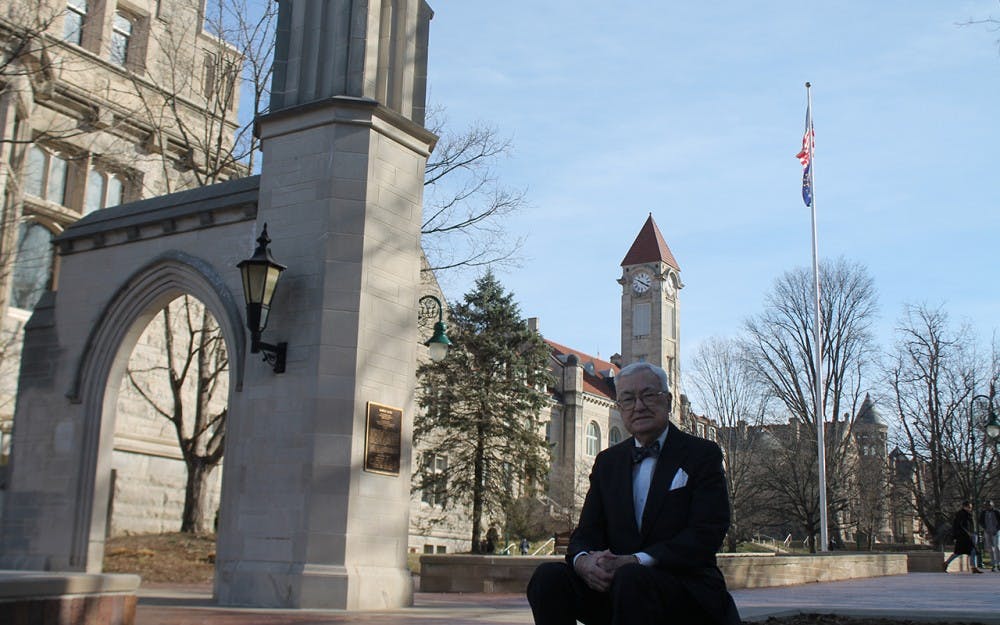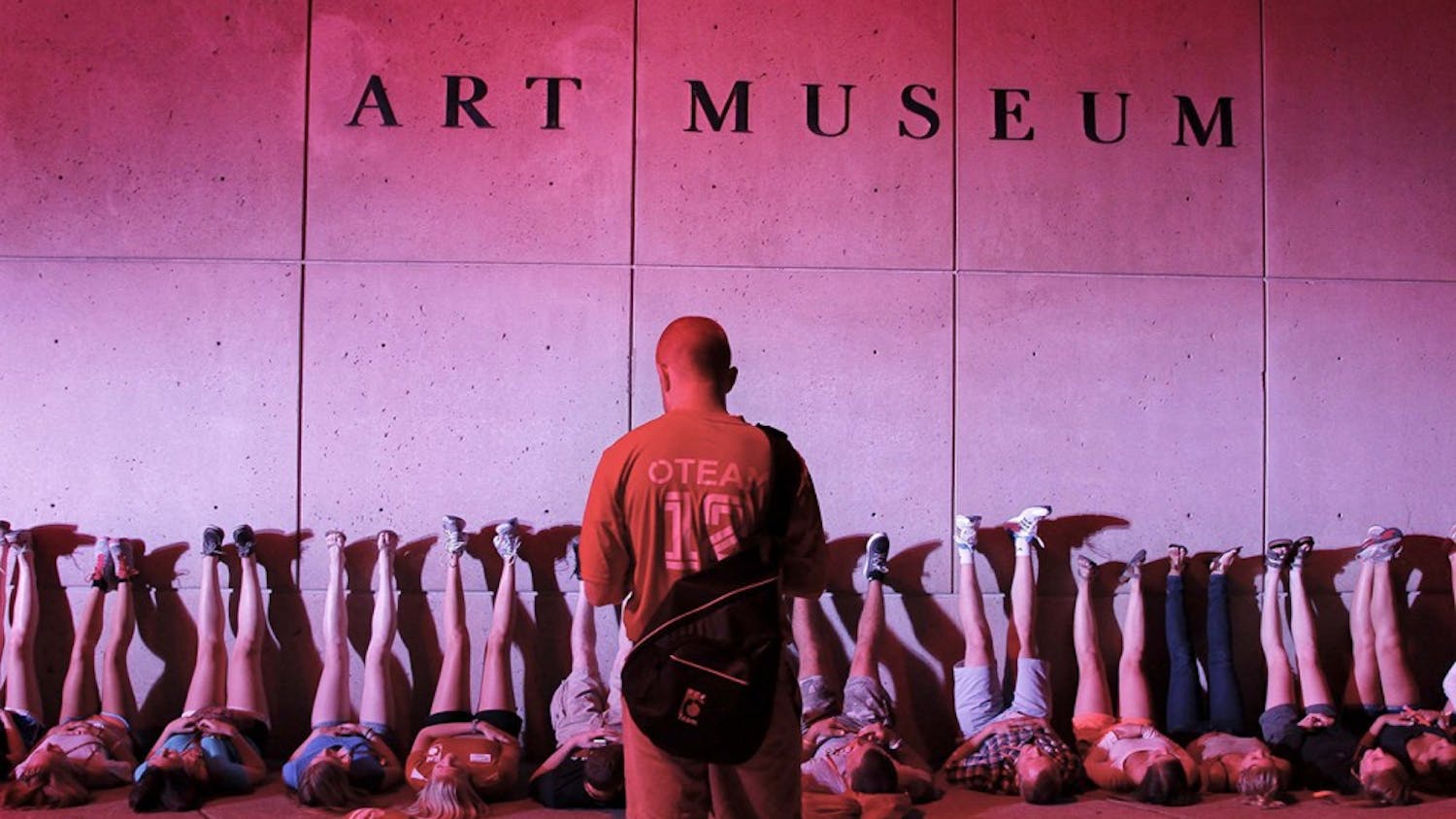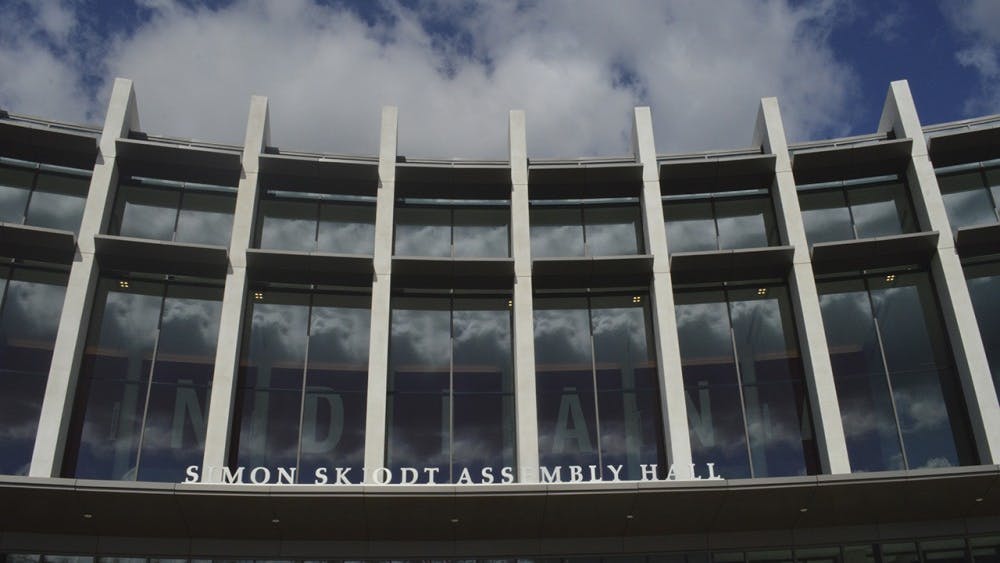A physical and symbolic entryway to campus, the Sample Gates stand at the crossway of Kirkwood and Indiana avenues on the west side of campus.
However, the gates are a relatively new addition to campus and at one point, that entry was not as welcoming. Edson Sample, who the gates are named after, said a one-way exit road was originally in front of Franklin Hall rather than the pathway and gates that are there now. Traffic signs reading “Do Not Enter” stood on either side of the road.
Now the gates are more welcoming than the deterring traffic signs, Sample said.
According to an article from the IU Library Archives by Carrie Schwier, the process of erecting a gateway at the Kirkwood Avenue entrance to the campus began with a University Arch Fund, established by the classes of 1899-1902. However, after finding out that Theodore F. Rose, an IU alumnus and trustee, was interested in a similar project, the classes redirected funds to the purchasing of chimes for the Student Building.
However, Rose found the design of the arches would further block the entrance to campus, so he eventually gave up the idea and directed his attention to the Rose Well House, a stone gazebo built as a major water source for campus, the article said.
Newell Sanders proposed another gateway at Kirkwood in 1931 and submitted various designs for a possible entrance. However, the Board of Trustees wanted to wait a little longer to create a gateway that would match other buildings on campus architecturally once the campus developed more.
“The campus is really integrated in the terms of the aesthetics,” said James Capshew, university historian and professor in the Department of History and Philosophy of Science and Medicine. “There are really nice buildings, paths and things like that.”
After different designs were submitted from Sanders and university architects Granger & Bollenbacher, Sanders withdrew his proposal for the gateway because a consensus could not be formed, according to the article.
Others showed interest throughout the years in creating a gateway, including Theodore Skinner from the Indiana Works Progress Administration and university architects Eggers and Higgins. However, it was not until 1962 that the trustees approved a contract with Eggers and Higgins. This contract agreed to close off the traffic entrance at Kirkwood and Indiana Avenues and change the previous street into grassy areas with walking space.
In 1966, Benjamin H. Long expressed an interest in erecting the gateway in memory of his parents. Eggers and Higgins also created a new, modern design, steering away from the original Gothic proposals. This new design created criticism from the donor, the trustees and Chancellor Herman B Wells, the article said. In 1968, the current design of the Sample Gates was settled on.
However, the building of the gateway created opposition from students, staff and community members who believed funding the project was wasteful. Wells wrote to Long expressing his regret for the criticism, and Long responded with a letter two weeks later saying he understood the gate could not proceed under the circumstances of criticism, the article said, with excerpts from the letter. The project was once again halted.
Once criticism of the project settled down, Sample came forward with an interest to fund the gates and dedicate them to his parents, Louise Waite Sample and Kimsey Ownbey Sample Sr., in the 1980s. The gates were dedicated June 13, 1987. Sample’s parents were both present at the dedication ceremony, Sample said.
Sample, now residing at Meadowood Retirement Community in Bloomington, did not grow up in town. He attended five different grade schools in four states, two schools in Memphis, Tennessee; one in New Orleans; one in St. Louis; and one in Fort Smith, Arkansas.
However, Sample worked at the Office of Scholarships and Financial Aids at IU for 29 years. He started as the assistant director for a few years before becoming director. He estimates he had the director position for 22 or 23 years.
Sample said his desire to donate the gates came from the fact that the administration throughout his time at the University had been extremely supportive, and he wanted to give something back to the school.
“He bleeds cream and crimson,” friend and member of the Media School Alumni Association Mary Dietz said.
Even though students protested the gates up until, at and after the dedication ceremony, Sample said he committed to not withdrawing his money like Long did before him.
He said one of the things that he likes most about the gates is that they are welcoming and bring people in instead of keeping them out.
“The campus is this wonderful repository of associations,” Capshew said. “It’s a beautiful place, you can explore, you can meet people, you can have experiences in this place of beauty and memory.”






